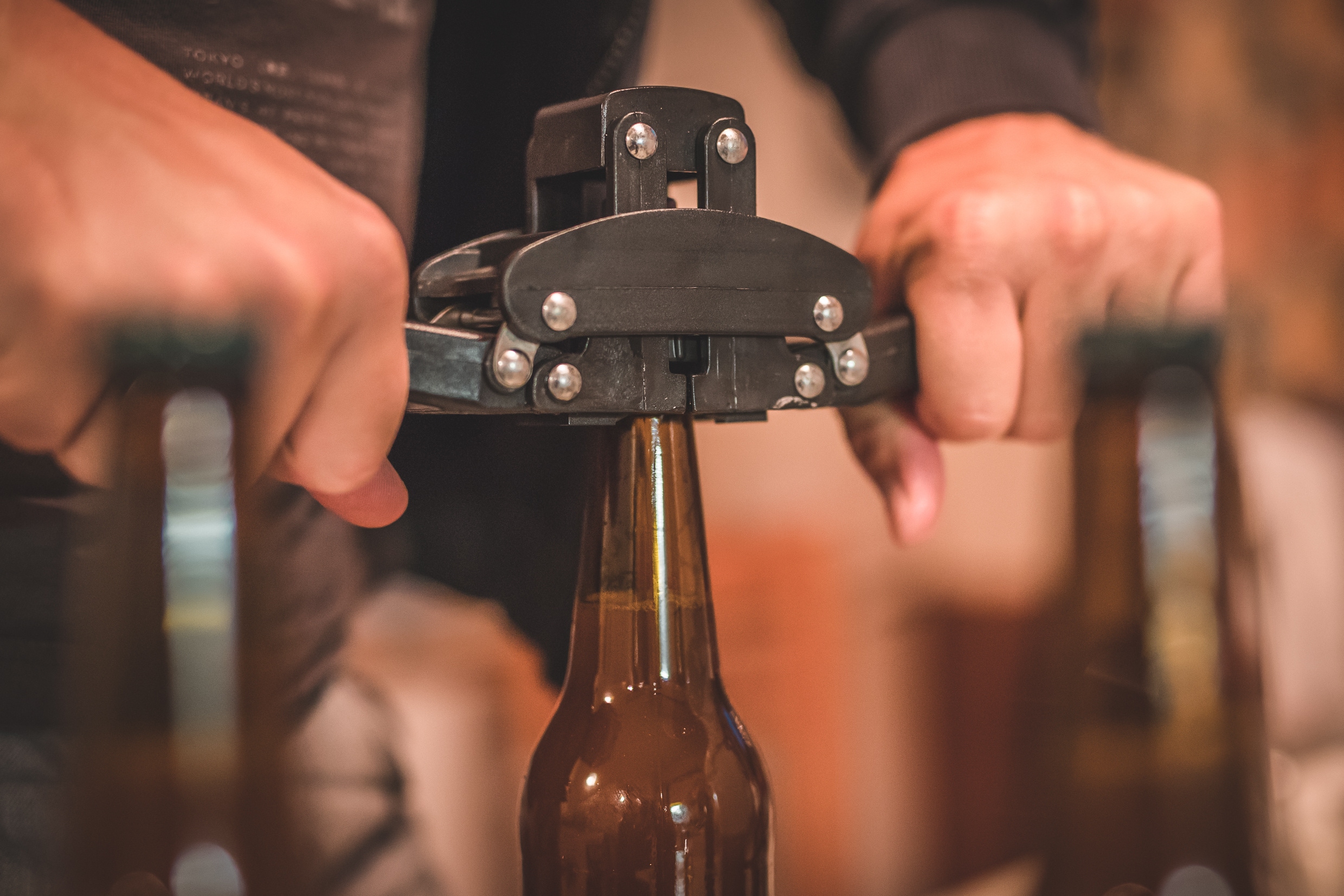

Homebrewing is a lot of trial and error, especially for the inexperienced. Collaboration helps with exponential knowledge gains. And camaraderie can save money, time, and heartache from big mistakes. Groups like Brewtubers, an online homebrewer club, allow members to exchange ideas and recipes and help each other out along their homebrewing journeys. The group meets once per month online but also maintains active communication on Discord, the social media platform. We talked to Eric Cumming, Brewtubers’ Club Ambassador, about the value of a homebrewing community, new trends, and how the stigma of all-in-one systems is fading.
The interview has been edited for length and clarity.
What are the benefits of a homebrewing club?
When I started home brewing, I knew one other homebrewer who didn't live near me at all. They’d brew like a batch year. Not super active in the hobby. So the big benefit to me is just to have that resource to ask questions. "Like, does anyone have a good recipe? What kind of hops would you use in that? Or, There’s this new product—has anyone used it before? Can you give me some tips? It's just great to have a community with a niche hobby like homebrewing."
What’s an example of a helpful information exchange?
We recently experimented with Yakima Valley Hops. They sent the club a new liquid hop extract. People said, "Make sure you warm it up and use the whirlpool. It'll leave this like an oily residue, but don't worry about it. That's how it's supposed to work. You didn't do anything wrong."
Do you exchange beers?
One of the great things about Brewtubers is we do a lot of beer shares and experiment series For instance, we experimented last summer with different hop products. Yakima Valley Hops provided regular hop pellets, the concentrated Lupo Max version, which is a concentrated hop product, but still in the pellet form. And then, the Incognito, which is the liquid hop extract I mentioned earlier.
[Each member] got one of the three. We all brewed the same beer with the different concentrates. Then we sent each other our beers so that everyone could try them. We could see the difference [between the products] and didn't have to make six different batches of beer to see the impact of an ingredient.
How exclusive is the community?
We make a point to be as welcoming and inclusive as possible for people. We know that a lot of times, especially like some of these communities on Facebook, they can get very in-group/ out-group. People will jump on you if you ask a silly question or something if you don't have much experience. We make a point to not do that. We want to be inclusive. We want to be welcoming to people. Some members have been brewing for 20 years. Some people have been brewing for a month.
We have a paying member who has never made a beer before, but they wanted to get into the hobby and have been asking us questions about what equipment to buy. This would've been great to know starting out because I bought tons of stuff that I ended up not needing.
What has recently gone out of fashion in homebrewing?
A lot of homebrewing has moved to streamline the brew-day process. Five years ago, you would look at something like an all-in-one system or a brew-in-a-bag setup as fake homebrewing. But that stigma is almost entirely gone. If you're making beer, you're homebrewing, right? So a lot of things to make the hobby more accessible means you buy less equipment and you can spend less time out of your day.
What do you attribute to the change in stigma?
We're seeing people brew that way and have success. They're winning competitions. They're making just as good of a beer as you could with your traditional three-vessel setup. The results speak for themselves.
What type of beers are homebrewers currently interested in?
I've seen a lot more focus back on classic styles. "When I got back into the hobby three years ago, I was seeing a lot of experimentation, like a lot of weird, crazy stuff. I'm making this kettle sour with these fruit adjuncts and blah blah blah." And this hazy IPA with all these new hops. And now I always see a lot of people making Czech dark lager, German pills, or something more traditional.
Now you're more just making beer that is more in line with the classic styles, but maybe using your modern ingredients or modern processes. A good example would be kveik yeast. You see a lot of people like making great high-quality lager but without the time commitment.
Do most homebrewers have bigger ambitions to work in the industry?
Personally, I don't have any desire for that. I have a job. It's great. They pay me. If I open a brewery, that might not be the case. I think most homebrewers don't have that ambition. In general, we're looking to just make the best beer we can at the homebrew scale. That's the focus of the club. Not to use it to piggyback off the club to launch it into a career. They're doing it for themselves.
Many Brewtubers create online content. But it is not a requirement. Members get access to 12 meetings per year for a $50 yearly fee. To sign up, visit brewtubers.com.
